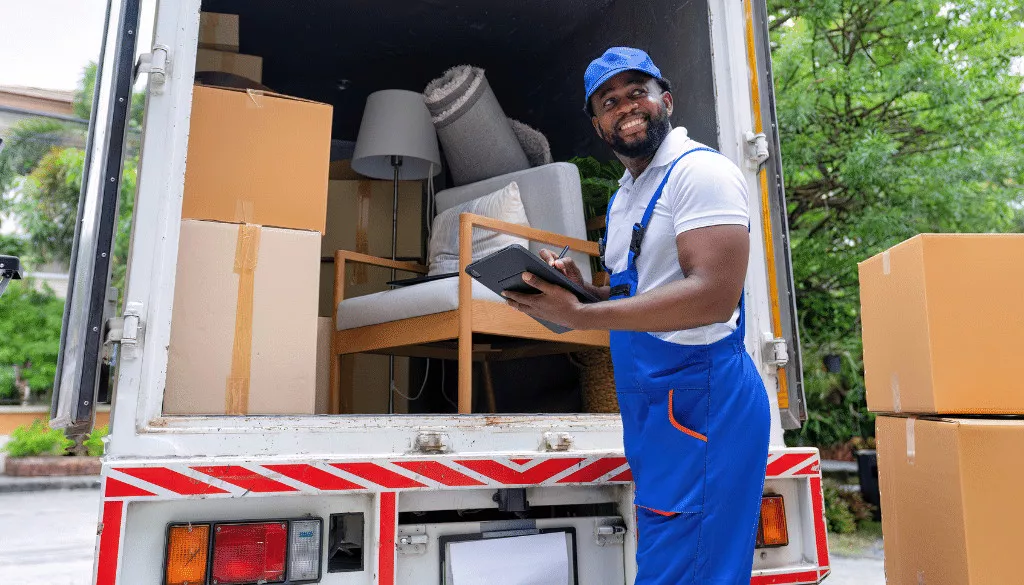You no longer have to be on your toes to chase after your kids and keep the house in order. There is peace and a new sensation in the house. Now that your offspring are adults, how do you spend your time? Feelings of sadness, nostalgia, and loss are common when observing how drastically your home has changed since the kids moved out. This is true in general, but especially if you are a mother who stays at home to care for her children.
“Empty Nest” Phenomenon
Parents go through a period of grieving and readjustment known as empty nest syndrome (ENS). The pain of a parent’s loss begins the moment their child leaves home.
Significant life changes like ENS usually occur between the ages of 40 and 50. Women are more likely to experience this than men. Symptoms like hot flashes, disturbed sleep, and fluctuating emotions are common among moms. Mothers often feel devalued after their grown children move out. They have devoted themselves entirely to raising their family. Then, when their kids grow up, they realise that all their hard work was for nothing.
Depressive Symptoms and ENS
If you’re experiencing any of the following symptoms, you may be suffering from empty nest depression.
A Sense of Futility
Many parents have a period of adjustment and disorientation once their children leave home. As new parents, their schedules revolved around school events and time with the family. It’s been hard to get up and going since the kids moved out and started their own lives.
Annoyance
You feel helpless now that you have no idea where your kids are. Once upon a time, you were aware of their daily routines. You’re also annoyed that you feel helpless in the face of their recent rise to power.
It’s time to stop hovering over your kids like a helicopter. Give your kids as much room as possible to develop into independent people. You’ve done a great job preparing them for the real world. Have faith that your kids can make it through the challenges of adulthood. Give them help if they ask for it. Just because they no longer reside with you does not mean that you cease to be their parent.
Suffering Emotionally
Sadness is a natural emotion to experience at this juncture in your life. Possible triggers for this bout of melancholy are detailed below:
- Your kids have grown up and moved out.
- When your children were younger, you neglected to spend time with them.
- You worry excessively about becoming elderly.
- You have doubts about your future as a married person.
- You didn’t make it to where you wanted to be in life.
Anxiety in Marriage
Once children enter the scene, most couples prioritise their parenting responsibilities over their marriage. When children leave home, parents are left staring at each other. They seem to have lost touch with one another since having children. Reconnecting with old friends can be a pain. But the two of you have always been a family. As a result, you’ll be in better shape to overcome the “empty nest” phase as a unit.
Worrying About Your Kids
You worry about your kids’ safety in the world outside your home. It’s natural to feel apprehensive sometimes. However, try not to worry too much. You are welcome to contact them in the first few days after their departure. It’s for the best of your kids’ education. You should avoid annoying them by constantly contacting them.
Don’t go through the trouble of stalking your kids’ social media profiles, either. Let them do what they want with their lives; they know where to find you if they need you. Several prevalent depressed symptoms are shared by parents with empty nest syndrome.
- Feeling anxious about transitions
- Finding the transition to independence emotionally taxing
- Conflicted union
- They are hurting because their children are becoming less reliant on them and more interested in experiencing the world on their own.
- Concerned that their kids lack the skills necessary to succeed in adulthood
Who Usually Suffers from “Empty Nest” Blues?
Full-time parents are more likely to have ENS, according to the available data, because of the following factors:
- They must not be left alone.
- Their marriage is in trouble.
- Their sense of self stemmed from the fact that they were parents.
Challenges Caused by the Onset of the “Empty Nest”
Having ENS presents several difficulties, including:
- Creating and maintaining a different kind of bond with your grown child
- When the kids are grown, how to rekindle your love as a couple
- What to do with your time since there are fewer responsibilities
- Others’ lack of care and compassion due to a failure to grasp your situation
Coping with the Loneliness of an Empty House
Many strategies exist to help empty nesters (ENS). They have more time to pursue interests outside of parenting, connect with their kids, and hang out with other empty nesters.
Even if you still have additional kids living at home, you can start to mentally prepare for the empty nest if even just one of your adult children has moved out. You can learn to accept the reality that your kids will grow up and go their separate ways. But for those with a single child, this can be a significant challenge. Major depressive disorder is strongly predictive of developing empty nest syndrome. Some strategies for dealing with ENS are provided below:
Admit That You’re Sad
Let yourself feel sad because you are empty inside. Once you’ve stopped crying, it’s time to acknowledge your emotions. Share your feelings of sadness with a close friend or partner. Don’t be shy about asking for help if you’re struggling.
Allow Yourself Some Space
Don’t put too much pressure on yourself to feel more positive immediately; change is difficult and adapting to it takes time. Now is the time to do some of the items on your list. Now is a great moment to go back to school and fulfill your educational goals. If you’ve been putting off volunteering or joining a community group because of your busy schedule, now is the time to get involved.
Get yourself interested in meditation or yoga, or start keeping a journal. Maintain a healthy lifestyle. Maintain a healthy lifestyle by eating right and going for regular checkups.
Look on the Bright Side
After their children move out, many parents report a marked improvement in their ties with their offspring. Now that the kids have moved out, you have more free time on your hands. You can begin fostering connections with other people in your life, including relatives, friends, and coworkers.
Seek Medical Attention

There ought to be a line that divides ENS from depression, so if the depression is intolerable and lasts more than two weeks, you should seek treatment. Depression is a psychiatric disorder that requires treatment. Joining a support group, consulting a psychologist for therapy, or seeing a psychiatrist for antidepressants are all viable options. To make it easier to seek care for your depression, mental health professionals might suggest local treatment centres.
Adult Children Owe It to Their Ageing Parents to Offer Support
Many adult children are eager to strike out on their own and establish their own identities. This causes them to ignore their parents. When it comes to their kids, parents will always have their backs. They need to put on a brave face even if the thought of their kids leaving them makes them feel sad and uneasy.
Don’t lose touch with your parents just because you’re an adult now. They devoted a considerable portion of their energies to you. Even if you’re thousands of miles away, they won’t stop thinking about you. Helping your parents adjust to life without you in the house is a great way to show them how much they mean to you. Some advice is as follows:
- Reach out to them. You don’t have to get in touch with them daily but do try to remember important dates like birthdays, holidays, and anniversaries.
- Spend some of your free time with them on their days off. Ask them to join you on some of your upcoming getaways.
- Get your parents together with their friends and have a party. This will help them cope with the loss you’ve caused when you part ways.
Accompany your parents to a mental health expert if they are having severe difficulties with ENS. Accompany them to their appointments. You might also try finding local support organisations for them to join. Keep in mind that your parents’ years are numbered. They should have as many positive experiences as possible, so make an effort to spend time with them.
A Mixed Emotion
When your children finally leave the nest, it might be a terrifying experience because you will have spent half of your life with them. Remember that your emotions are perfectly reasonable and valid. Your feelings of loss and grief are shared by every parent whose children have grown up and moved out.





